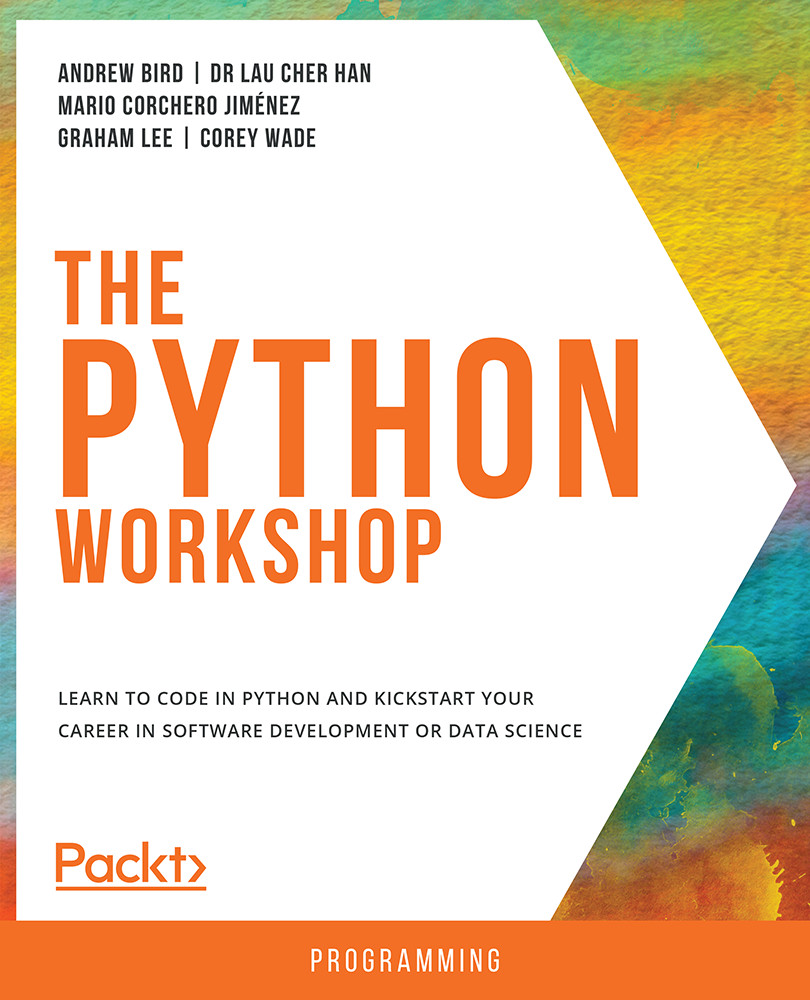-
Book Overview & Buying

-
Table Of Contents

The Python Workshop
By :

The Python Workshop
By:
Overview of this book
 Free Chapter
Free Chapter
 Sign In
Start Free Trial
Sign In
Start Free Trial


 Free Chapter
Free Chapter
When you work with code, you need a way in which to keep a picture of how your code evolves and how changes are being applied to different files. For instance, say that, by mistake, you make changes to your code that suddenly breaks it, or you start to make changes and just want to go back to the previous version. Many people start with just copying their source code into different folders and naming them with a timestamp based on checkpoints they make on different phases of the project. This is the most rudimentary approach to version control.
Version control is the system by which you keep control of code as it evolves over time. Developers have been suffering for long enough to create a piece of software that can do this job efficiently, and one of the most popular tools to do this is a Git. Git is a Distributed Version Control System that allows developers to manage their code locally as it evolves, look at the history, and easily collaborate with other developers...

Change the font size
Change margin width
Change background colour